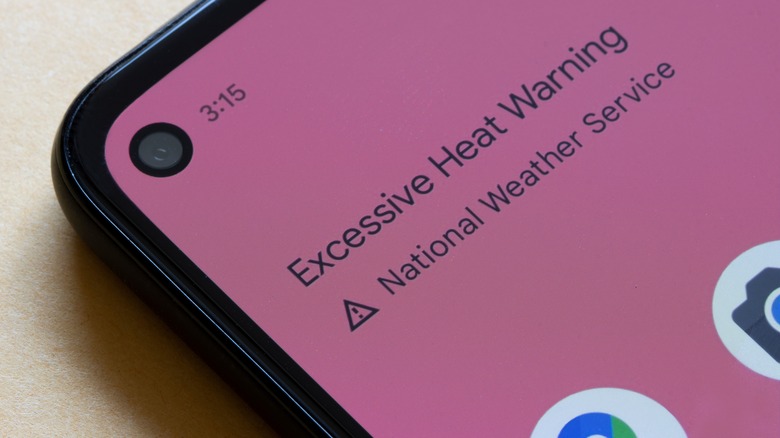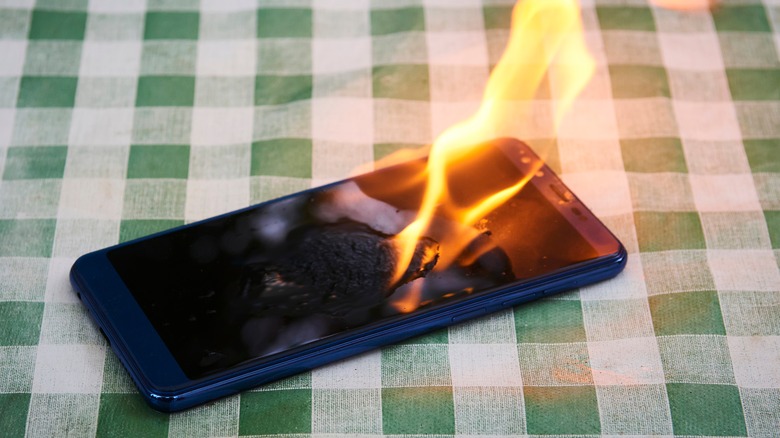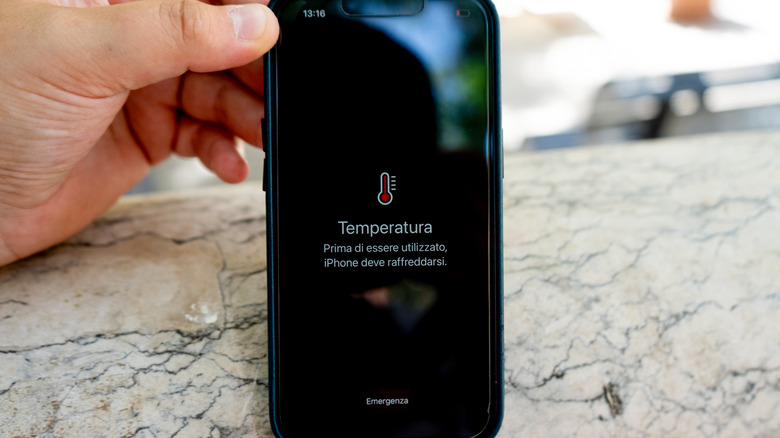Here's How Heat Can Hurt Your Phone's Battery
Compared to the giant, boxy cellular phones of decades past, modern smartphones are much more optimized and efficient in their designs. As long as you remember to stick a screen protector on them and to take it out of your pocket before washing your pants, they're surprisingly resilient as well. You can take a smartphone just about anywhere in the world, and as long as you handle it with respect, it'll be fine. However, there is one primal element that smartphones have yet to fully conquer -– heat.
High levels of heat are a smartphone's mortal enemy. Any extreme temperatures are bad for a smartphone, of course, but intense cold only drains your battery charge a little faster. Heat, on the other hand, can permanently damage your phone at best and outright destroy it at worst. But what exactly is it about intense heat that your smartphone can't tolerate? And more importantly, what can you do to protect your phone from heat?
Heat stress dangers
It's easy to forget that smartphones are, in essence, small computers. You know how your computer has all of those fans, vents, and coolers to keep itself from overheating? A smartphone is just as susceptible to overheating in bad conditions, but while they may have some simple cooling systems, most smartphones aren't designed with the same level of temperature regulation utilities as computers. This is why, when the phone's temperature rises due to a combination of processor stress and external heat sources, you're officially in the danger zone.
If your phone's internals get too hot, they can start to warp. A little bit of warping can be manageable, but if it gets too bad, the phone will break. That's small potatoes compared to the main concern, though -– the battery. Intense heat, much like the other parts of your phone, can warp your battery, reducing its overall charge capacity. More concerningly, though, your phone's Li-on battery is full of flammable gasses and chemicals. Normally, the battery is airtight, but if intense heat warps the casing too much, those gasses can leak out. In the worst-case scenario, the gasses could ignite, causing your phone to catch fire or explode.
What can you do?
Naturally, the best possible thing you can do to keep your phone safe from heat is to keep it out of the heat. If it's an especially hot day out, for instance, either leave your phone at home or, if you're running errands in an air-conditioned place, don't leave it in your car. You can also use special accessories like phone fans and thermal bags to keep the temperature strictly regulated.
Most modern smartphones can be safely operated at around 95 degrees Fahrenheit. If things get hotter than that, your phone may flash a warning that it's become too hot to safely operate. In this situation, you should promptly move your phone somewhere cool like an air-conditioned room, or at least move it into the shade, but not in a pocket of your clothes or in a bag. Air flow around the phone is important to help it cool down. Stop using the phone if possible to give it time to settle down. If your phone is in a case, take the case off as they can often trap heat in. Most importantly, do not attempt to charge your phone while it's in a heated state, as charging produces a lot of extra heat in itself.


